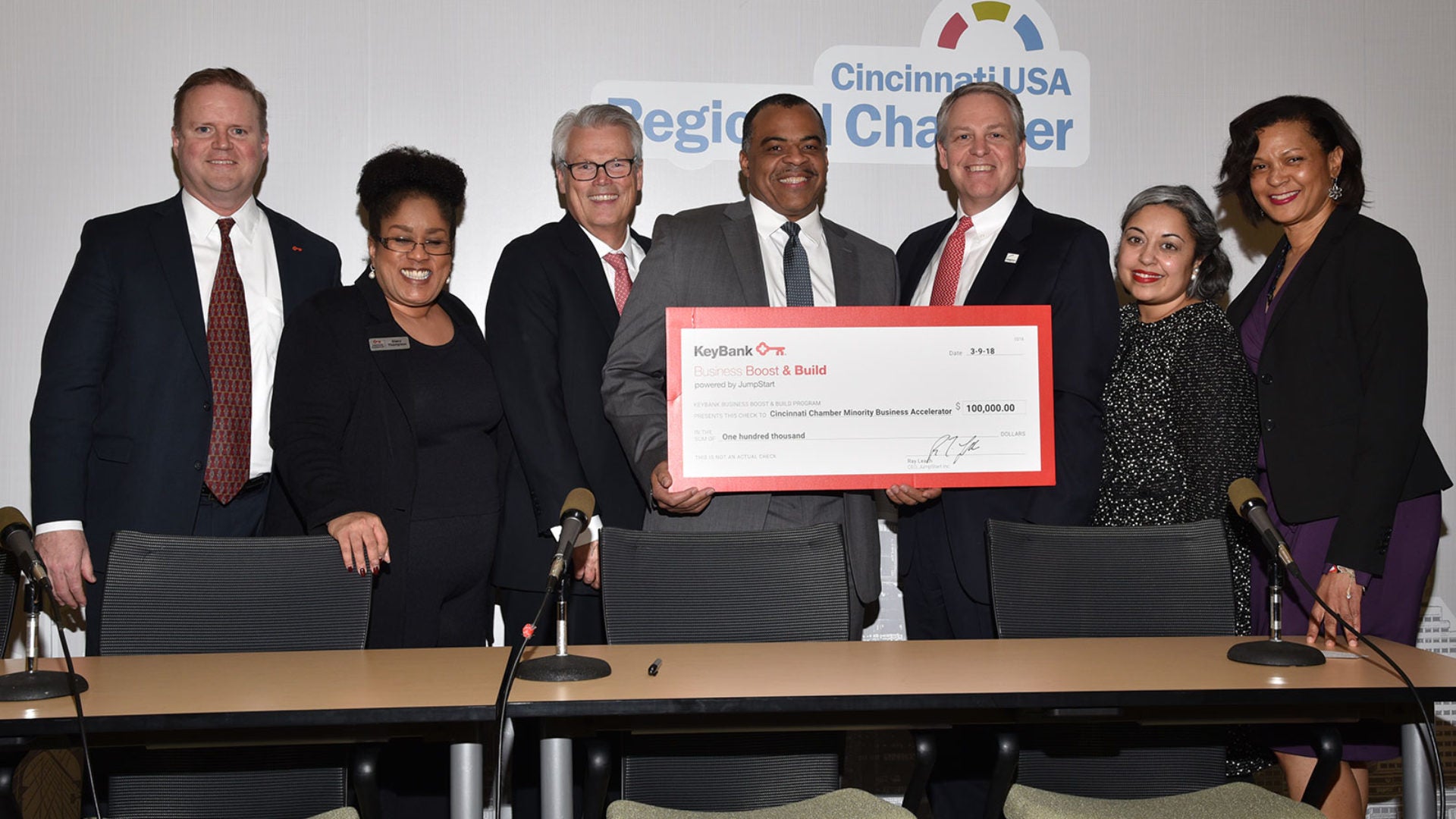
When you think of the next hub for minority entrepreneurship, Cincinnati is probably not the first destination that comes to mind. But for those who are unfamiliar, the Cincinnati metropolitan area is the fastest-growing economic power in the Midwestern United States.
Needless to say, business is booming. Especially if you’re Black.
In fact, The Queen City as it’s sometimes known ranks number 42 in the first-ever Surge Cities Index released and put together by Inc. magazine and Startup Genome.
This wouldn’t be accomplished however if it weren’t for a dedicated group of individuals and entrepreneurs who are working to change the narrative on the growing innovative making way into the city.
Darrin Redus, for instance, is the Vice President & Executive Director of the Minority Business Accelerator and describes his work as “purpose driven.” Leading the team at the Minority Business Accelerator, Redus’ program strategically pushes the development of Cincinnati’s sizable minority business enterprises forward, in addition to strengthening and expanding the regional minority entrepreneurial community.
And now his work will go even further, thanks to a hefty co-sign.“We got word that we were selected to receive a $450,000 grant from the Kauffman Foundation,” Redus shared. “Dollars are great, but frankly the purpose of the grant is far more exciting. The nature of the grant was to identify where there are successful models of growing minority businesses to scale, and how might such a model inform this work nationally. This also comes on the heels of a report that came out in January by LendingTree that ranked the largest 50 U.S. metropolitan areas where minorities were finding success, and Cincinnati ranked in the top 10 on that list just behind Atlanta.”
The foundation’s mission is to help individuals attain economic independence by advancing educational achievement and entrepreneurial success, consistent with the aspirations of its founder Ewing Marion Kauffman. According to Redus, “This Kauffman grant not only positions our minority business work as a national best practice but it’s a great thing for the city as a whole to have this asset that will also enable us to attract more minority talent to the region. People are drawn to where they perceive opportunity for everyone.”
This is true even south of the Ohio River. Brit Fitzpatrick leads entrepreneurship for Northern Kentucky Tri-ED, which is building a robust entrepreneurial ecosystem that connects startups and small businesses with mentors, partners, resources, and potential funders. Though some of these efforts take place across state lines her work still aids in building the Cincinnati region’s resources for growing entrepreneurs.
And that’s why they’ve found success according to Fitzpatrick. “It’s regional,” she explained. “It’s interesting because you’re seeing a lot of communities outside of the coast try to figure out how they partner or work with neighboring entrepreneurship communities. No one community has all the resources that it needs to do all the work that needs to be done. The Cincinnati region has figured out how to do that by really making sure that whether you’re across the river in Covington where I am or you are in Cincinnati proper that you are apart of this broader community of entrepreneurs.”
She continued, “We have a rich legacy of entrepreneurship as a community. I see that in a variety of ways, whether with what Mortar is doing [or] Hillman Accelerator on the high-growth tech side. There’s just a really cool pipeline building here for Black entrepreneurship. The exciting thing is that it’s also starting to stem over to the river with expansion of Mortar into Covington so we’ll start to see an even greater impact for the entire community in that area.”
Candice Matthews-Brackeen has also seen tremendous success using the accelerator model to support minority-owned businesses in Cincinnati. Through the Hillman Accelerator, which was launched in 2016 by Matthews-Brackeen, along with former Cincinnati Bengals linebacker Dhani Jones, and Ebow Vroom, the program provides underrepresented founders with seed funding, partnership opportunities, and mentorship.
In addition, Matthews-Brackeen also acquired Angela Benton’s NewME accelerator for underrepresented entrepreneurs, as part of the LightHouse portfolio, which also includes the Hillman Accelerator program.
Though Brackeen’s Hillman accelerator, notable minority founders have found success through building and scaling their companies in Cincinnati including SoLo Funds, a mobile-based low value lending exchange platform, and Excited, the first gay lifestyle, health and beauty brand in Latin America.
But that’s not where it ends. Change is also coming to the city on an institutional level. The University of Cincinnati, for instance, launched its 1819 Innovation Hub in hopes of creating a near-campus innovation corridor to help bridge the academic research and business communities—something that’s worked well for Stanford University in the Bay Area’s startup ecosystem.
While the city is still a long way from becoming the next Silicon Valley, it’s fair to say that Cincinnati may already be pulling away as a model for how to embrace and grow a tech startup scene outside of the established coastal paragons.